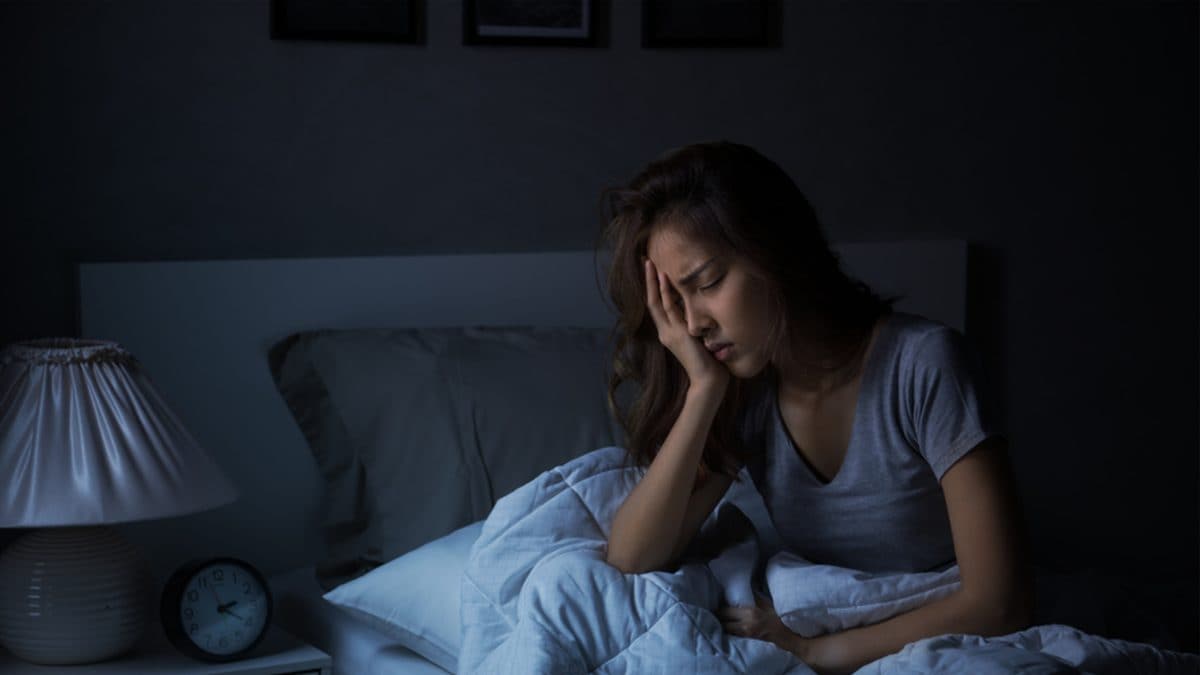Sleep is essential for good health, but many people worldwide suffer from insomnia, which can have negative effects on both physical and mental health.
Along with evidence-based strategies to improve general well-being and quality of sleep, mental health expert Dr. Ishan Shivanand discusses how ancient yogic techniques can provide a comprehensive and scientifically supported approach to treating insomnia.
Sleep is an indispensable component of overall health and well-being. Yet the prevalence of insomnia affects one-third of adults worldwide. Insomnia often signals a decline in mental health and can lead to increased anxiety and stress, reduced quality of life, cognitive impairments, etc. This World Sleep Day, it is imperative to explore evidence-based yogic practices that offer a scientific and holistic approach to combating insomnia.
- The insomnia epidemic:Insomnia is the most common sleep-related medical concern. 30%–50% of adults encounter sleep problems annually, with one-third experiencing frequent trouble falling asleep, staying asleep, or enduring poor sleep quality. The societal toll is significant, encompassing heightened healthcare costs, lost productivity, and adverse effects on mental and physical health.
- Current Treatment Landscape:Traditional treatments like Cognitive Behavioural Therapy for Insomnia (CBT-I) have proven effective but face limitations, including the need for trained providers and delayed therapeutic response. Pharmacological interventions, often chosen due to their immediacy, may lead to adverse effects and substantial economic burdens. The need of the hour is novel, easily accessible, and cost-effective treatments that require no in-person contact.
- Yogic Practices Beyond Asanas:Yogic practices, which extend beyond the physical postures commonly associated with yoga, offer a comprehensive and low-risk alternative. Complementary, mind-body and alternative therapies show promise but lack robust evidence. Deep breathing techniques, such as pranayama, activate the parasympathetic nervous system, promoting relaxation and reducing stress hormones. Additionally, meditation, a core element of yoga, enhances sleep quality by calming the mind and reducing racing thoughts. Non-pharmaceutical interventions collectively contribute to better sleep hygiene, offering a holistic and scientifically validated approach to managing insomnia.
- Physiological Impact of Yogic Practices:The physiological impact of yogic practices on the body involves a reduction in catecholamine levels (epinephrine and norepinephrine) through meditation and yogic techniques. Additionally, meditation and yoga enhance the activity of melatonin, a crucial hormone regulating sleep, circadian rhythm, and the internal biological clock. These practices also positively influence melatonin, enhancing its activity and contributing to improved sleep. Integrating yogic practices into lifestyles also provides a holistic approach to well-being, acknowledging their role in promoting overall health.
- Personalising Yogic Practices for Sleep Health:Tailoring yogic practices to individual needs and preferences empowers individuals to incorporate evidence-based techniques into their daily routines. Encouraging an integration of holistic yogic interventions in conventional treatments for insomnia can help foster a personalized and sustainable approach to sleep health.
To optimise sleep health, it is essential to incorporate a variety of relaxation techniques. Engaging in relaxation practices can help alleviate stress, allowing for neurophysiological and metabolic rest crucial for rejuvenating the body and mind. Embracing yoga-based deepening and breathwork techniques offers not only physical relaxation but also stimulates emotional and cognitive processes, aiding in unwinding before bedtime. Additionally, integrating meditative modalities into one’s routine can help foster a non-judgmental state of heightened awareness, promoting a tranquil mindset conducive to better sleep. By recognising yoga as a lifestyle for holistic well-being, we open avenues for a paradigm shift in combating insomnia.


